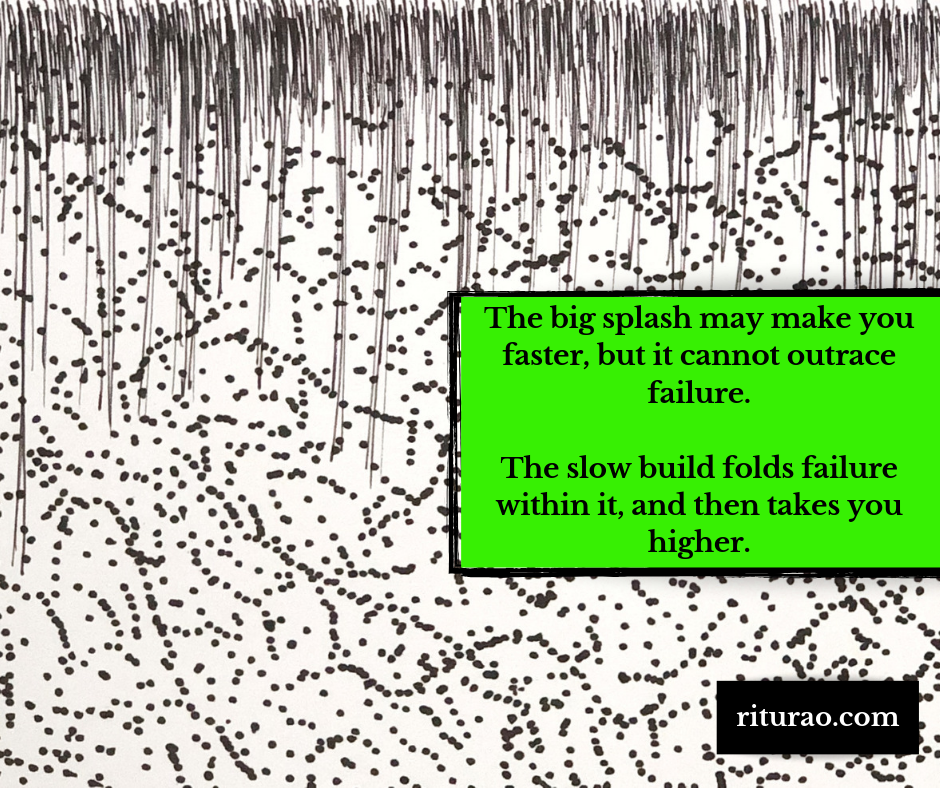
Three Years Ago
I looked at the row of packed boxes and thought, Wow, it’s time.
It hit me just then that my office had always been only a few boxes away from looking like it belonged to no one in particular, ready for the next person, the next photo on the desk, the next plant by the window.
Almost ten years ago, I remembered coming here, setting up my things, sorting through the forgotten knick-knacks, the motley stationary, the mystery keys no one seemed to know which lock they belonged to.
I had just taken over a business, a dental practice, from the previous owner who had moved on to another town, another life. Now it was my turn to build and grow the practice into my own.
In the earlier years, I found myself in the trenches. A lot.
When you’re new at something, it’s easy to put enormous pressure on yourself to excel right from the start. I was scared I wouldn’t be able to handle the problems because I’d never faced these kinds of problems before. I didn’t know how to navigate my newbie failures. And I panicked about not knowing the answers right away.
But, over time, you learn the hard lessons if you pay attention, or else life keeps teaching them till you do.
So I did.
And I learned. More than I thought I needed, and enough to know I’d never learn it all. And worked with what I had.
I had come into my business naive, fresh, unseasoned, and left more experienced, humbled, and gritty, with the requisite scars to show for it.
For a long time I had this festering feeling that I should’ve been progressing faster, reaching higher, and well, you know, all the ‘shoulds’.
Only in the later years did I come to accept and become comfortable with my pace, my progress, my goals as they aligned with how I wanted to practice and what helped me do my best. It was one of my life’s biggest lessons, and learning it could have only happened at the pace it did, no matter how “slow” it seemed to me.
Somewhere along the line we have . . . I have lost patience for being new at something, to start at zero and build from there.
Heck, sometimes I don’t even want to start till I know there’s a certain level of ROI, guaranteed.
There is this urgency to be an instant expert, to show up big, and win right away. It feels like everyone’s watching, comparing, measuring.
Start off with a big splash, or else you’re doomed.
And if you keep measuring yourself against others’ perceived instant successes and feel like you’re coming up short, you’re not far from being doomed either.
This is partly to keep our fear of failure at bay, but also because we think only big, immediate successes carry enough momentum to keep us going faster and faster, fast enough to outrace failure.
It was in the trenches that I found—really quickly—that the big splash route wasn’t going to be the one for me.
Even the fanciest ad or the most viral PR campaign runs out of spotlight at some point, now quicker than ever. The downside is that if there’s no solid foundation to launch from, it eventually flutters like confetti down to the ground.
On the other hand, if you build slowly, try new ways to solve problems, look at things and ideas from different angles, get up more often after failing, and keep building consistently, the sum can be greater than its parts. Much, much greater.
And it lasts a heck of a lot longer.
Present day
The story is different. A lot different.
I’ve sorted through the boxes. The knick-knacks are no more. I left the keys where I found them.
My stationary, however, is a constant source of child-like pleasure and expanding, bookish joy. (What can I say, the heart wants what it wants.)
But my efforts toward the slow build—for wherever and whatever I choose—are still in effect, lifting me up.
I love the concept of folding failure in as you build slowly.
When I used to golf with my older brother, we had very different styles. He was always aiming for the flag, even if that meant going over 40′ pine trees to cut off a dogleg. He was a powerful golfer and could pull that stuff off.
I’d aim for a place I thought I could hit from, hopefully in the middle of the fairway. Lots of course corrections, because I was never very good.
Like any beginner.
Fold failure into the learning process, like yeast into dough, and rise higher.
Thanks, Joel. 40′? Splashy indeed. Sounds way more appealing than ‘beginner’. No wonder we resist!